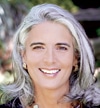by Maria Sirois
Just about the time when we finish our formal education, most of us have figured out that our deepest learning has occurred through the process of being educated rather than the content that’s been offered. The gauntlet of homework and exams, the pressure of peer relationships that succeed or sometimes fail, the negotiation of status and power in the hallways and cafeterias, and the relentless press of other people’s expectations (teachers, guidance counselors, coaches, principals) create a learning environment rampant with opportunity to develop inner strength and resilience—or not.
When our schools work well as communities, they provide wisdom that enables students to develop the capacity to ride the challenges offered by the classroom—wisdom that can translate outside those walls. Here’s what we can learn in school:
1. Although we might not fit perfectly into one group or any group, we matter as much as anyone else. In the best of all worlds, we come to adulthood recognizing that other people’s needs count—and ours do as well. We understand that healthy relationships are based on an ebb and flow of giving and receiving, and that we deserve to receive goodness and bounty, attention and care, kindness and encouragement. With this understanding, our self-esteem becomes solid and certain, our self-care becomes steady, and our positive self-regard rises. We learn that giving to others and also giving to ourselves are good and necessary for a healthy world.
2. All things pass. Dark times with friends, an angry instructor, trouble with calculus or hallway politics all have an ebb and flow. A bad month in seventh grade doesn’t have to mean a bad year. A harsh rejection at auditions for the school play doesn’t mean you’ll never have the chance to shine on stage, or offer a talent in some other form. Nothing lasts, neither good nor bad, and the healthiest of school environments creates options for students to find their way into optimism again and again.
3. There is no one formula for success. We can learn, grow, achieve, and feel big and bright inside, no matter which track we choose. And, as well, we can change tracks at any time to accommodate an increasing awareness of our truth. In the best of all worlds, we graduate not just with a diploma but also with an appreciation for our unique, distinctive self.
Resilience is not just about knowing how to face the darkest of times by making healthy, healing choices. It’s also about building a platform of knowledge and practices that amplify flourishing in all areas of life. A great education does just that: enables a student to flourish and pay that flourishing forward in the world. Perhaps you had such an education, perhaps not. No matter—the good news is that it’s never too late to learn the lessons that create resilience and positivity. It’s never too late to become your hardier, happier, truer self.
—This post was originally published in Kripalu: Thrive.
Dr. Maria Sirois, PsyD, is the Vice President of Curriculum at Wholebeing Institute and an inspirational speaker, seminar leader, and author who has worked at the intersections of wellness, psychology, and spirituality for nearly 20 years. As a wellness guide, Maria has been invited to keynote throughout the country at conferences for wellness centers, hospitals, hospices, philanthropy, business, academic and corporate institutions, as well as for the general public. She has been called both a “true teacher” and “an orator of great power and beauty.” Her book, “Every Day Counts: Lessons in Love, Faith, and Resilience from Children Facing Illness, was published in 2006.”










